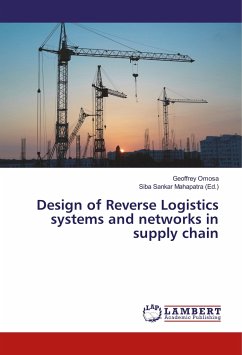
Supply Chain-Based Category Strategies for Global Supply Networks
An Empirical Analysis of the Supply Market for Polyamide Engineering Thermoplastics in the Automotive Industry
Versandkostenfrei!
Versandfertig in 1-2 Wochen
66,00 €
inkl. MwSt.

PAYBACK Punkte
0 °P sammeln!
From a supply chain perspective, often big differences exist between global raw material suppliers¿ approaches to supply their respective local markets. The progressing complexity of large centrally managed global supply networks and their often-unknown upstream ramifications increase the likelihood of undetected bottlenecks and inefficiencies. It is therefore necessary, to develop an approach to strategically master the upstream complexity of such networks from a holistic perspective, in order to align regional competitive priorities and supply chain structures. The research is set in the co...
From a supply chain perspective, often big differences exist between global raw material suppliers¿ approaches to supply their respective local markets. The progressing complexity of large centrally managed global supply networks and their often-unknown upstream ramifications increase the likelihood of undetected bottlenecks and inefficiencies. It is therefore necessary, to develop an approach to strategically master the upstream complexity of such networks from a holistic perspective, in order to align regional competitive priorities and supply chain structures. The research is set in the context of polyamide engineering thermoplastics in the automotive industry. Based on an initial industry analysis and a literature review, a conceptual framework is developed. The framework is matched with existing empirical and theoretical literature, as well as multiple case study analyses in the relevant supply market and a centrally managed global supply network. As a result, strategic group theory is transferred into the supply network management context, to allow for the consideration of upstream supply chain structures in the category strategy development process. The proposed approach introduces strategic groups of supply chains as a segmentation criterion for complex global supply networks, which enables the network-wide alignment of competitive priorities, flexibility requirements, and partnerships with suppliers. Supply chain-based category strategies can effectively reduce the complexity firms are facing in this context. The results of this research are applicable for certain types of global supply networks, and can be used for network alignment and strategy development. The approach can furthermore generate valuable insights useable for negotiation support with suppliers.












